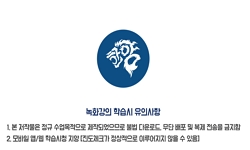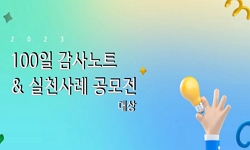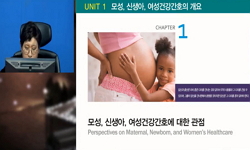본 연구는 신경증 성향과 산후 우울의 관계에서 감사와 양육스트레스의 영향을 확인하기 위해 산후 4주 이상 1년 이내의 어머니 155명을 대상으로 설문을 실시한 자료를 분석하였다. 그 결과,...
http://chineseinput.net/에서 pinyin(병음)방식으로 중국어를 변환할 수 있습니다.
변환된 중국어를 복사하여 사용하시면 됩니다.
- 中文 을 입력하시려면 zhongwen을 입력하시고 space를누르시면됩니다.
- 北京 을 입력하시려면 beijing을 입력하시고 space를 누르시면 됩니다.
https://www.riss.kr/link?id=A106254952
- 저자
- 발행기관
- 학술지명
- 권호사항
-
발행연도
2019
-
작성언어
Korean
-
주제어
신경증 ; 감사 ; 양육스트레스 ; 산후 우울 ; Neuroticism ; Gratitude ; Parenting stress ; Postpartum depression
-
등재정보
KCI등재
-
자료형태
학술저널
-
수록면
191-198(8쪽)
-
KCI 피인용횟수
4
- DOI식별코드
- 제공처
- 소장기관
-
0
상세조회 -
0
다운로드
부가정보
국문 초록 (Abstract)
본 연구는 신경증 성향과 산후 우울의 관계에서 감사와 양육스트레스의 영향을 확인하기 위해 산후 4주 이상 1년 이내의 어머니 155명을 대상으로 설문을 실시한 자료를 분석하였다. 그 결과, 신경증 성향과 산후 우울의 관계에서 감사와 양육스트레스가 각각 부분적으로 매개하는 것으로 나타났다. 또한, 신경증 성향이 감사 성향과 양육스트레스를 통하여 산후 우울에 영향을 미치는 이중 매개효과가 있는 것으로 나타났다. 본 연구결과를 토대로 신경증 성향이 있는 산모는 감사 강점의 발달이 저해되어 있을 것이고, 이는 양육스트레스의 증가로 이어져 산후 우울에 이르는 것을 확인할 수 있었다. 이 연구를 통해 산후 우울의 치료와 예방에 있어 감사 강점 개입의 가능성과 양육스트레스를 다루는 것이 중요함을 제안하였다.
다국어 초록 (Multilingual Abstract)
Background: The purpose of this study is to investigate the effects of gratitude and parenting stress in the relationship between neuroticism and postpartum depression. Methods: 155 respondents(mean age: 32.54 years) who were 4 weeks or more and 1 ye...
Background: The purpose of this study is to investigate the effects of gratitude and parenting stress in the relationship between neuroticism and postpartum depression.
Methods: 155 respondents(mean age: 32.54 years) who were 4 weeks or more and 1 year or less postpartum completed surveys that measured levels of neuroticism, gratitude, parenting stress, and postpartum depression.
Results: First, it shows that gratitude and parenting stress had partial mediating effect between neuroticism and postpartum depression each. Second, it was analyzed that gratitude and parenting stress had dual mediating effect between neuroticism and postpartum depression.
Conclusions: Based on the results of this study, it was confirmed that neuroticism could inhibit the development of gratitude, and that leads to an increase in parenting stress, leading to postpartum depression. Also, current results suggest that gratitude intervention and dealing with parenting stress in the treatment and prevention of postpartum depression is important. This paper includes limitations, implications, and suggestions for the future study.
목차 (Table of Contents)
- Key messages
- Abstract
- 서론
- 연구방법
- 결과
- Key messages
- Abstract
- 서론
- 연구방법
- 결과
- 고찰
- References
참고문헌 (Reference)
1 권선중, "한국판 감사 성향 척도(K-GQ-6)의신뢰도 및 타당도" 한국건강심리학회 11 (11): 177-190, 2006
2 유태용, "한국판 HEXACO 성격검사의 구성타당화 연구" 한국사회및성격심리학회 18 (18): 61-75, 2004
3 한귀원, "한국어판 에딘버러 산후우울 척도 : 신뢰도와 타당도" 대한생물치료정신의학회 10 (10): 201-206, 2004
4 여정희, "출산 후 6개월 여성의 산후우울 정도와 예측요인" 한국여성건강간호학회 12 (12): 355-362, 2006
5 천희영, "영아 어머니 우울의 예측 변인 분석: 어머니의 부모됨 및양육 관련 체계 변인을 중심으로 · 고신대학교 · 광주대학교" 인지발달중재학회 2 (2): 71-90, 2011
6 송민정, "어머니의 신경증적 성격특성과 양육 스트레스 및 유아의 스트레스가 문제행동에 미치는 영향" 대한가정학회 49 (49): 117-127, 2011
7 박영주, "산후우울 예측요인" 한국간호과학회 34 (34): 722-728, 2004
8 이은주, "산후우울 예측모형 개발: 산전우울의 매개효과 검증을 중심으로" 한국간호과학회 45 (45): 211-220, 2015
9 김지양, "산후 우울감을 예측하는 심리적 요인 연구:사회적지지, 자아존중감, 스트레스를 중심으로" 한국건강심리학회 13 (13): 111-140, 2008
10 안옥심, "산욕기 산모의 산후 우울과 양육스트레스 및자아존중감과의 관계" 한국모자보건학회 10 (10): 58-68, 2006
1 권선중, "한국판 감사 성향 척도(K-GQ-6)의신뢰도 및 타당도" 한국건강심리학회 11 (11): 177-190, 2006
2 유태용, "한국판 HEXACO 성격검사의 구성타당화 연구" 한국사회및성격심리학회 18 (18): 61-75, 2004
3 한귀원, "한국어판 에딘버러 산후우울 척도 : 신뢰도와 타당도" 대한생물치료정신의학회 10 (10): 201-206, 2004
4 여정희, "출산 후 6개월 여성의 산후우울 정도와 예측요인" 한국여성건강간호학회 12 (12): 355-362, 2006
5 천희영, "영아 어머니 우울의 예측 변인 분석: 어머니의 부모됨 및양육 관련 체계 변인을 중심으로 · 고신대학교 · 광주대학교" 인지발달중재학회 2 (2): 71-90, 2011
6 송민정, "어머니의 신경증적 성격특성과 양육 스트레스 및 유아의 스트레스가 문제행동에 미치는 영향" 대한가정학회 49 (49): 117-127, 2011
7 박영주, "산후우울 예측요인" 한국간호과학회 34 (34): 722-728, 2004
8 이은주, "산후우울 예측모형 개발: 산전우울의 매개효과 검증을 중심으로" 한국간호과학회 45 (45): 211-220, 2015
9 김지양, "산후 우울감을 예측하는 심리적 요인 연구:사회적지지, 자아존중감, 스트레스를 중심으로" 한국건강심리학회 13 (13): 111-140, 2008
10 안옥심, "산욕기 산모의 산후 우울과 양육스트레스 및자아존중감과의 관계" 한국모자보건학회 10 (10): 58-68, 2006
11 이영진, "부모의 양육스트레스와 우울이 유아의 문제행동에 미치는 영향" 한국영유아교원교육학회 21 (21): 301-324, 2017
12 임선아, "부모의 양육스트레스와 우울, 자녀의 행복 간의 관계" 한국아동학회 39 (39): 49-59, 2018
13 김지영, "대학생의 성격강점 및 덕성과 성격장애와의 관계" 한국청소년학회 21 (21): 75-99, 2014
14 유은영, "긍정 심리치료가 우울경향이 있는청소년의 행복감, 낙관성, 무망감 및우울에 미치는 효과" 한국건강심리학회 18 (18): 669-685, 2013
15 윤성민, "감사성향과 안녕감, 우울의 관계: 자아-적응유연성의 매개효과" 한국심리학회 32 (32): 1003-1021, 2013
16 Song SY, "study on the relation between depression of mother after childbirth and the development of social emotion of her child" 3 (3): 27-38, 2000
17 Barbara L. Fredrickson, "What good are positive emotions in crisis? A prospective study of resilience and emotions following the terrorist attacks on the United States on September 11th, 2001." American Psychological Association (APA) 84 (84): 365-376, 2003
18 Robert R. McCrae, "Validation of the five-factor model of personality across instruments and observers." American Psychological Association (APA) 52 (52): 81-90, 1987
19 Lewis R. Goldberg, "The structure of phenotypic personality traits." American Psychological Association (APA) 48 (48): 26-34, 1993
20 Alex M. Wood, "The role of gratitude in the development of social support, stress, and depression: Two longitudinal studies" Elsevier BV 42 (42): 854-871, 2008
21 Kim EJ, "The influence of empathy ability of college student on happiness: the mediating effects of gratitude and helping behavior" Myoungji University 2017
22 McCullough ME, "The grateful disposition: A conceptual and empirical topography" 82 : 112-127, 2002
23 Ju-Yeon Lee, "The association of gratitude with perceived stress and burnout among male firefighters in Korea" Elsevier BV 123 : 205-208, 2018
24 Watkins PC, "The Psychology of Gratitude" 167-192, 2004
25 Lazarus RS, "Stress Appraisal and Coping" Springer 1984
26 Fabian Gander, "Strength-Based Positive Interventions: Further Evidence for Their Potential in Enhancing Well-Being and Alleviating Depression" Springer Science and Business Media LLC 14 (14): 1241-1259, 2013
27 Seo HY, "Social support and adaptation of mothers with handicapped children"
28 R. MARTÍN-SANTOS, "Research Letter: Is neuroticism a risk factor for postpartum depression?" Cambridge University Press (CUP) 42 (42): 1559-1565, 2012
29 Kurosh Mohamadi Hasel, "Relationships of Personality Factors to Perceived Stress, Depression, and Oral Lichen Planus Severity" Springer Science and Business Media LLC 20 (20): 286-292, 2013
30 Robert, RC, "Psychology of Gratitude" 58-78, 2004
31 Ravi Prakash Upadhyay, "Postpartum depression in India: a systematic review and meta-analysis" WHO Press 95 (95): 706-717C, 2017
32 Neslihan Keser Özcan, "Postpartum Depression Prevalence and Risk Factors in Turkey: A Systematic Review and Meta-Analysis" Elsevier BV 31 (31): 420-428, 2017
33 Lee HS, "Physiological responses patterns of type A and type B during task performance" Korea University 1989
34 S. I. Iliadis, "Personality and risk for postpartum depressive symptoms" Springer Science and Business Media LLC 18 (18): 539-546, 2015
35 Angela J. Pereira-Morales, "Perceived Stress as a Mediator of the Relationship between Neuroticism and Depression and Anxiety Symptoms" Springer Science and Business Media LLC 38 (38): 66-74, 2019
36 Abidin RR, "Parenting stress Index" Pediatric Psychology Press 1990
37 Kirby Deater-Deckard, "Parenting Stress and Child Adjustment: Some Old Hypotheses and New Questions" Wiley 5 (5): 314-332, 1998
38 Hayes AF, "Introduction to mediation, moderation, and conditional process analysis: A regression-based approach" Guilford Press 2013
39 Sidney J. Blatt, "Interpersonal relatedness and self-definition: Two prototypes for depression" Elsevier BV 12 (12): 527-562, 1992
40 Alex M. Wood, "Gratitude uniquely predicts satisfaction with life: Incremental validity above the domains and facets of the five factor model" Elsevier BV 45 (45): 49-54, 2008
41 Nathaniel M. Lambert, "Gratitude and depressive symptoms: The role of positive reframing and positive emotion" Informa UK Limited 26 (26): 615-633, 2012
42 Evan M. Kleiman, "Grateful individuals are not suicidal: Buffering risks associated with hopelessness and depressive symptoms" Elsevier BV 55 (55): 595-599, 2013
43 Paul T. Costa, "Four ways five factors are basic" Elsevier BV 13 (13): 653-665, 1992
44 Neto F, "Forgiveness, personality, and gratitude" 43 : 2313-2323, 2007
45 Nancy L. Sin, "Enhancing well-being and alleviating depressive symptoms with positive psychology interventions: a practice-friendly meta-analysis" Wiley 65 (65): 467-487, 2009
46 Yu JE, "Effects of parenting stress on postpartum depression: control effect of emotional values of children and father’s parenting involvement" Kwangwoon University 2015
47 Jo MJ, "Effect of gratitude on life stress among nursing students" 21 (21): 57-64, 2017
48 Song E. Kim, "Direct and Indirect Effects of Five Factor Personality and Gender on Depressive Symptoms Mediated by Perceived Stress" Public Library of Science (PLoS) 11 (11): e0154140-, 2016
49 Cox JL, "Detection of postnatal depression: Development of the ten-item Edinburgh Postnatal Depression Scale" 150 : 782-786, 1987
50 Cheryl Tatano Beck, "Comparative Analysis of the Performance of the Postpartum Depression Screening Scale With Two Other Depression Instruments" Ovid Technologies (Wolters Kluwer Health) 50 (50): 242-250, 2001
51 David A. Clark, "Cognitive specificity and positive-negative affectivity: Complementary or contradictory views on anxiety and depression?" American Psychological Association (APA) 99 (99): 148-155, 1990
52 Martin E.P. Seligman, "Chris Peterson’s unfinished masterwork: The real mental illnesses" Informa UK Limited 10 (10): 3-6, 2014
53 Qinglu Wu, "Child maltreatment and adult depressive symptoms: Roles of self-compassion and gratitude" Elsevier BV 80 : 62-69, 2018
54 Peterson C, "Character strengths and virtues: a handbook and classification" Oxford University Press 2004
55 Lewis R. Goldberg, "An alternative "description of personality": The Big-Five factor structure" American Psychological Association (APA) 59 (59): 1216-1229, 1990
56 Patricia Simon, "An Exploratory Study About the Buffering Effect of Gratitude on the Relationship Between Neuroticism and Anhedonic Depression" Springer Science and Business Media LLC 61 (61): 340-347, 2016
57 Kwon JH, "A test of a vulnerability-stress model of postpartum depression" 16 : 55-66, 1997
58 Cho HJ, "A study of predicting postpartum depression and the recovery factor from prepartum depression" 15 (15): 245-254, 2004
59 S.B.G. Eysenck, "A revised version of the psychoticism scale" Elsevier BV 6 (6): 21-29, 1985
60 Resul Bugdayci, "A Cross-Sectional Prevalence Study of Depression at Various Times after Delivery in Mersin Province in Turkey" Mary Ann Liebert Inc 13 (13): 63-68, 2004
동일학술지(권/호) 다른 논문
-
불안민감도가 과제 수행과 스트레스 반응에 미치는 영향: 우울감의 조절효과
- 대한스트레스학회
- 김소리(Sori Kim)
- 2019
- KCI등재
-
Correction to: 재난 후 생활변화가 외상 후 스트레스 장애에 미치는 영향
- 대한스트레스학회
- 임혜선(Hye Sun Lim)
- 2019
- KCI등재
-
여대생의 체중조절행위에 따른 자기통제, 우울, 섭식태도
- 대한스트레스학회
- 차선경(Sunkyung Cha)
- 2019
- KCI등재
-
초기 청소년의 학교생활스트레스가 주관적 행복에 미치는 영향: 학교급 및 성별 차이
- 대한스트레스학회
- 손선옥(Seon Ok Son)
- 2019
- KCI등재
분석정보
인용정보 인용지수 설명보기
학술지 이력
| 연월일 | 이력구분 | 이력상세 | 등재구분 |
|---|---|---|---|
| 2022 | 평가예정 | 재인증평가 신청대상 (재인증) | |
| 2019-01-01 | 평가 | 등재학술지 유지 (계속평가) |  |
| 2017-03-01 | 학술지명변경 | 외국어명 : THE KOREAN JOURNAL OF STRESS RESEARCH -> stress |  |
| 2016-01-01 | 평가 | 등재학술지 선정 (계속평가) |  |
| 2015-01-01 | 평가 | 등재후보학술지 유지 (계속평가) |  |
| 2013-01-01 | 평가 | 등재후보학술지 유지 (기타) |  |
| 2012-01-01 | 평가 | 등재후보 1차 FAIL (기타) |  |
| 2011-01-01 | 평가 | 등재후보학술지 유지 (등재후보2차) |  |
| 2010-01-01 | 평가 | 등재후보 1차 PASS (등재후보1차) |  |
| 2009-01-01 | 평가 | 등재후보학술지 유지 (등재후보1차) |  |
| 2007-01-01 | 평가 | 등재후보학술지 선정 (신규평가) |  |
| 2006-06-30 | 학회명변경 | 한글명 : 대한신심스트레스학회 -> 대한스트레스학회영문명 : The Korean Society Of Biosociobehavioral Science -> The Korean Society of Stress Medicine | |
| 2006-06-27 | 학회명변경 | 한글명 : 대한신심스트레스학회 -> 대한스트레스학회영문명 : The Korean Society Of Biosociobehavioral Science -> The Korean Society of Stress Medicine |
학술지 인용정보
| 기준연도 | WOS-KCI 통합IF(2년) | KCIF(2년) | KCIF(3년) |
|---|---|---|---|
| 2016 | 1.76 | 1.76 | 1.63 |
| KCIF(4년) | KCIF(5년) | 중심성지수(3년) | 즉시성지수 |
| 1.61 | 1.44 | 2.211 | 0.2 |





 DBpia
DBpia







